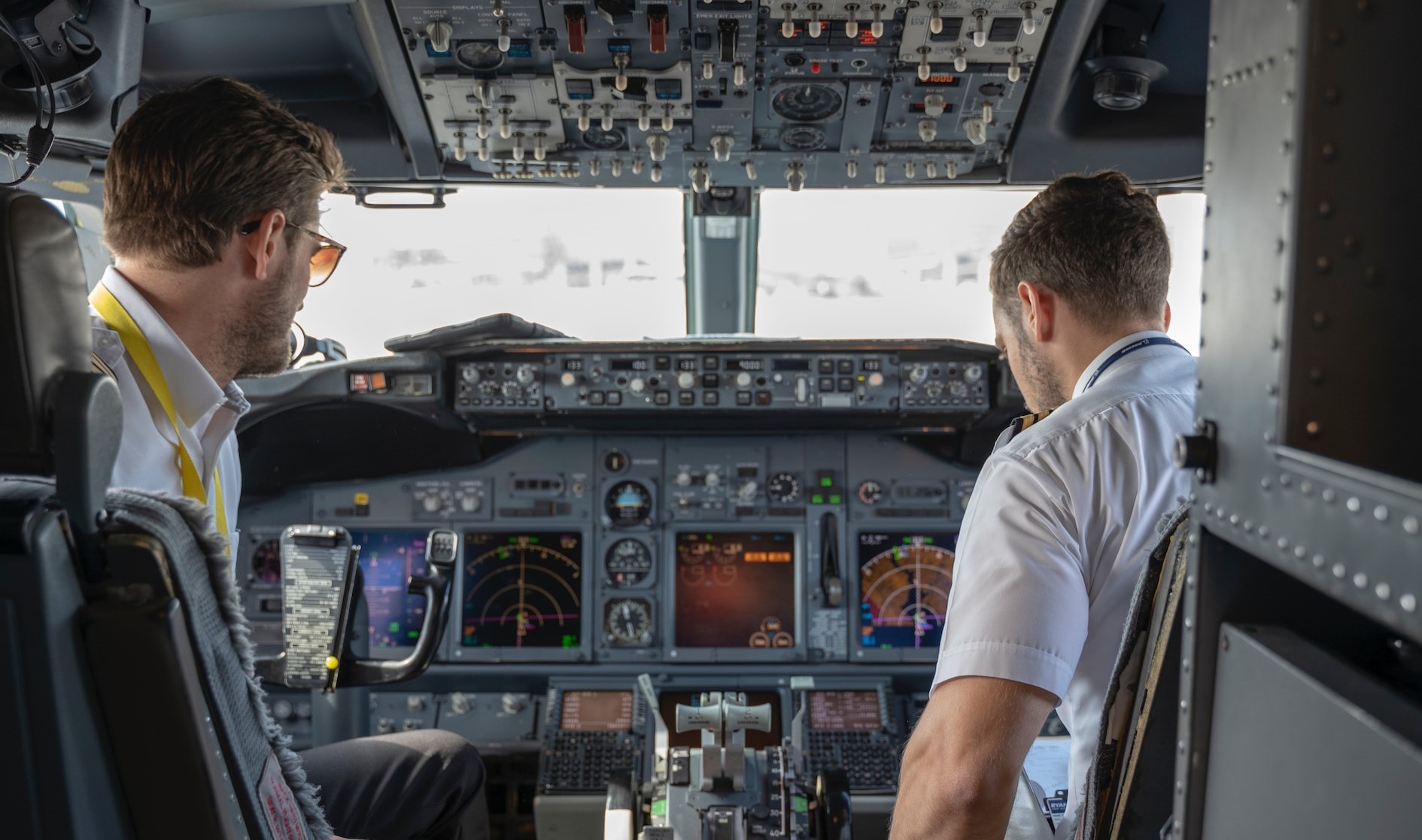As a profession, flying for an airline appears glamorous, thrilling, and financially rewarding. Typically, when people think of a pilot, they picture someone working for a large airline that flies passenger jets across the country or worldwide.
Being a pilot is a fulfilling career choice in many ways. They have plenty of opportunities to lead in the aviation industry. If you’re interested in working as a pilot, check out these tips for learning more about your dream job.
Is Pilot a Good Career?
Becoming a Pilot is a fascinating career choice. It is considered one of the lucrative professions that have robust compensation packages. But they must also have flying hours, aviation knowledge, and strong leadership skills. Next, they should possess a great passion for flying, multitasking, thinking on their feet, and working well under pressure.
If you’re ready to pursue your aviation dream, keep reading and tune in!
1. Experts in Aviation
Pilots are employees in the aviation industry, and their career path includes the safe operation of aircraft to carry passengers or cargo.
Pilots must check aircraft and cargo for proper functioning and safety before takeoff and ensure that the flight will take place in favorable weather conditions.
The captain and co-pilot work together to ensure the plane is piloted and navigated safely.
Currently, these are only a few such licenses that are highly acknowledged and include,
- Private Pilot
- Commercial Pilot
- Airline Transport Pilot
In this field of work, you can always pick up new skills, and there are many options for expansion.
2. Interesting Career Choice
One of the best occupations out there is being an airline pilot.
As an airline pilot, you’ll have the chance to see the world as you go up the ranks. Being a pilot and securely transporting passengers to their destination is rewarding.
In addition, you can keep improving your flying abilities and broadening your knowledge with every new lesson you take.
However, you’ll need a significant budget to pay for courses and exams required for certifications and licenses. Further, getting a pilot’s license involves a steep learning curve and passing various examinations.
Due to the restrictions of the aviation industry, pilots often need to work during the holiday season.
3. Strong Remuneration Package
As a pilot, you can expect to make a good living and advance your career.
According to the BLS, the standard wage for a pilot in the United States is $134,630 per year.
It is true, however, that some pilots employed by large airlines earn much more.
When pilots put in extra time on their days off, their pay can climb by as much as 300%.
Benefits packages for pilots, especially those working for commercial airlines, are generous.
- Health, Life, Vision, And Dental Insurance
- Retirement Plan
- Vacation Time
As you can see, the pilot salary and bonus market continue to rise. As a result, pilots would see a pay raise of approximately 30% in the coming years.
4. Passion For Flying
As a profession, pilots appreciate the excitement of flying.
Sharing a flight experience with their passengers is one of life’s greatest joys. Pilots are living proof that following your passion is achievable.
Therefore, aviation professionals are one-of-a-kind people who love flying passionately and enthusiastically.
At first fly,
- they were interested in the opportunity to manage a sophisticated piece of technology,
- undertake difficult flying decisions, see the world, and
- meet and collaborate with interesting new people.
They chose this profession because being a pilot offers countless benefits, including traveling, meeting interesting people, and experiencing a high quality of life.
5. Education and Training
One can pursue one of two paths to join the ranks of pilots.
1) Nine-Month Course
Several independent flight schools provide a nine-month course designed to teach students every aspect of flying safely and efficiently. To become a first officer, you must accrue 1,500 flight hours and certification from the Federal Aviation Administration.
2) College Education
Getting a college degree in aviation is a second choice. Suppose you have a four-year degree and an FAA license. In that case, you can become a first officer for a regional airline after logging 1,000 hours of flight time.
Overall, to become an airline pilot, it takes a minimum of two years of flight training from ground zero.
6. Leadership Skills

Pilots need to know what it takes to be a good leader.
Pilots must follow guidelines during flights to minimize the risk of mistakes and prepare for emergencies.
Additionally, the ability to comprehend the internal dynamics of one’s aircraft is essential for pilots. Pilots typically perform the following standard operating procedures and technical tasks:
- Condition of the aircraft
- Ensure fuel supply
- Air traffic control
To fly safely, pilots need to be familiar with the plane’s data and capable of doing quick calculations in their heads.
Lastly, constant communication and cooperation with flight dispatchers, air traffic controllers, and fellow pilots are essential for pilot safety and efficiency.
7. Best Pilot School
If you’re starting in the aviation industry, picking a top-notch pilot school will greatly benefit your future success.
In the same way that medical students must finish a residency before practicing, pilots typically see this next step as their “internship” before moving on to an airline.
Regional airlines often hire pilots who have already accumulated the necessary hours of flight time for their Airline Transport Pilot certificate.
After two to three years as a pilot for a regional airline, an individual can expect to be promoted to captain, which carries with it a sizable salary boost.
Many pilots work for a minor airline for five to ten years before moving on to a major airline.
8. Continued Growth
In 2021, an estimated 135,300 airline and commercial pilots were operating, projected to expand by 6% each year over the next decade, as the Bureau of Labor Statistics reported.
Over the next two decades, the aviation industry will need to train and hire 602,00 pilots to fly for commercial airlines worldwide.
On the other hand, here are some of the alternative career paths you can pursue as a pilot:
- Flight Instructor
- Corporate aviation
- Law enforcement
- Cargo carrier
9. Travelling the World
By the very nature of their job, pilots get to travel the world a lot.
Pilots typically spend 75 of their working hours in the air each month, with the other 150 spent on administrative and other tasks.
As a result, pilots work in a constantly energetic atmosphere that requires their attention, day and night, all year long. Because of this, they can’t schedule time off for vacations or other personal errands.
Additionally, some reports claim that long-haul pilots spend more time away from home than shorter-haul pilots.
This signifies that pilots in the aviation sector have to miss out on spending the holidays with their families.
10. Work-life Balance
Pilots still have time to pursue their interests and hobbies.
In the aviation industry, a senior pilot can take as many as 20 days off per month. In contrast, a junior pilot can take at least 12.
They see that they submit a schedule request to their airline based on personal and family demands.
Because they appear to be highly attentive, they enjoy the hobby of tying flies for the sport of fly fishing. One more widespread interest is in photography. Of course, reading is also a fantastic way to pass the time.
However, an employee’s tenure is a significant factor in determining their work schedule and the number of paid days off they receive each month.
11. Time-Consuming
Learning how to fly takes time and effort.
Time spent in training can be very demanding. Therefore, trainees can’t bypass licensing in any other manner.
Schedule shifts can also disrupt your standard sleeping patterns. For example, taking a flight at night can leave you feeling exhausted. That tiredness can build up over time, leading to insomnia.
As you can see, being a pilot is exciting and excitingly challenging but can also be repetitive.
Pilots who routinely fly the same route, like the New York–Boston–Washington shuttle, develop an intimate familiarity with that path. Even so, no two flights are ever the same.
Conclusion
As we’ve learned, piloting an aircraft may be a worthy career option if you’re a young adult passionate about aviation.
While there are certainly drawbacks to the profession that prospective pilots need to know about and understand, it can still prove satisfying and rewarding on multiple levels.
At the end of the day, a career as a pilot is an interesting and worthwhile one, even though it is difficult to attain. As with anything else in life, perseverance is critical.

